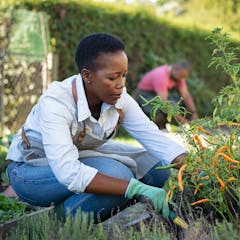
Articles on Toronto
Displaying 1 - 20 of 136 articles

A fire that destroyed St. Anne’s Church in Toronto serves as a reminder that cultural legacy needs to be conserved and protected from disaster.

The stunning byelection loss in a reliably Liberal Toronto riding doesn’t bode well for the political future of Prime Minister Justin Trudeau.

Canadian universities’ requests for court orders and police enforcement to clear Palestine solidarity encampments raise questions about the legal status of encampments and the use of injunctions.

Both Liberals and Conservatives have invested a lot of resources into an upcoming Toronto byelection. If the Liberals lose the riding, it will be an ominous sign for Justin Trudeau’s Liberals.

Recent student protests are attempts to humanize the Palestinians in desperate need of a ceasefire. Students deserve a dignity-affirming dialogue, not the continued use of police brutality.

This episode explores how colonial history has affected what we plant and who gets to garden. We also discuss practical gardening tips with an eye to Indigenous knowledge.

Public health measures during the COVID-19 pandemic precipitated a huge shift to online work, drastically affecting office space and business districts. However, data shows that this may be changing.

The myth of the ‘healthy immigrant’ has likely resulted in policymakers dismissing the health-care needs of newcomers to Canada. That’s why electoral participation is so important.

From an economic development perspective, the highly skewed nature of AI activity in the US is likely to create large pools of high-skilled workers in some regions while leaving other regions behind.

Casteism is commonly seen as a form of discrimination limited to South Asia. However, diaspora communities in Canada are also grappling with issues of caste.

The power of a handwritten letter became clear when baseball player Joey Votto penned an apology to Canadian fans. Votto also reopened the debate about whether kids should learn cursive writing.

The film ‘Past Lives’ provides meaningful insights on how immigrant youth grow into their cultural identity.

A study of newcomer Latin American and Black Caribbean parents in Ontario schools found many parents felt excluded from processes surrounding assessments for their child’s learning needs.

Underground thermal networks have the potential to revolutionize how Canadians heat their homes while helping to reduce carbon emissions.

The experiences of bird safety NGOs show that when trying to achieve environmental goals, being on good terms with stakeholders is important, but direct action can also yield results.

What do coroner’s inquests do, what don’t they do, and why are they often dominated by police perspectives rather than the community’s or the victim’s?

Parents in a study about the accessibility of French immersion programs discussed inadequate support for learning to read and feeling pressured to pay for expensive tutors.

Young Black men are being denied employment for multifaceted reasons, and when they do find work, are often trapped in low-paying jobs.

Decades of activism have resulted in legislation and infrastructure to make cities more accessible, but the lived experiences of disabled residents shows there’s still a long way to go.

Listening to voices of racialized students in French immersion matters for creating more inclusive schooling.
